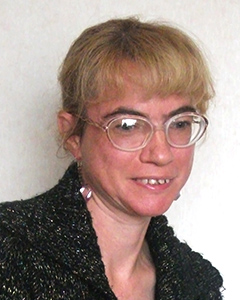In advance of Editing Goes Global, New Zealand’s Leonie Pipe shares her story with the Editors’ Weekly of how she became a science editor.

A circuitous route
I fell into editing as I fall into most of my life’s activities — by some circuitous, curly-whirly route. I’ve always loved writing, and when I was a child I had idyllic visions of a small office built next to my house in which I would write books for a living. Later, as I grew up, I realized that fiction writing was not a lucrative profession, unless you could make it to the very top, and the thought of so many rejection letters put me off. But I’ve always dabbled in writing as a hobby, and I now make a living out of editing other people’s writing.
But I don’t edit fiction — I edit science. I studied science at university, and after getting my PhD in biophysics I had dreams of an academic career. However, that interest fizzled out, too, as the reality sank in: finding your first post-doctoral position is difficult. The market is bursting at the seams with PhD graduates who linger in the system for want of anything better to do, or who would be working if jobs were available. Many people expressed interest in my work and in getting me a post-doc, but the funding simply wasn’t there. At one stage, I was told to write my own funding grant. I then realized that being in academia involves writing one grant after another, being part of a big school of fish competing for the rare scraps of funding handed out by governments and (more and more commonly) commercial interests.
It was a friend at university who got me into EDANZ (Editing in Australia and New Zealand). I didn’t want to do it; I didn’t think I had the ability. But he pushed me into it, and I found that I really enjoyed it. Unfortunately, EDANZ didn’t have the volume of work to offer me full-time employment. But then Enago found me on LinkedIn, and while their pay is not high, they offer a huge variety of interesting work, and their conditions are flexible.
Editing science: simplicity and elegance
So, how do I approach scientific editing? Much scientific writing (including that written by native English speakers) is unnecessarily dry and verbose. I aim for simplicity and elegance in sentence structure (in fact, this is always rated my strong point in my monthly reports; my weak point is punctuation, because I get confused about use of the Oxford comma — is there anyone who doesn’t?). As I gained experience, I learned to relax and allow the author’s own voice to come through — and yes, this is as important in scientific writing as in fiction writing, and I can thank my many colleagues in editing groups and forums for guidance in this direction.
I now edit material on almost any scientific topic going: astrophysics, algebra and topology, robotics, statistical methods and analysis, biophysics, neural networks, architecture, engineering (all facets), earth science, medical topics, chemistry, nanotechnology, colloids, climate change and many others. Each of these topics has its own specialized terminology, and it pays to check these terms online if they look strange or if the word order appears incorrect. Some clients get very upset if you change the order of two words (as I have learned; it was a tough and unpleasant lesson, but I learned it well).
Finding the right path
For those wanting to get into editing, the market for scientific editing is huge because good English is key to getting published. However, I have only worked for companies who decide my rate of pay, which is relatively low for my qualifications. I have also done editing for private clients (students) who can’t afford a high rate. The work is always there and plentiful, I enjoy doing it and the income is sufficient for a decent lifestyle. To me, that is far more important than earning at a level that fits my qualifications.
In the long run, my perfection has paid off. I am fortunate in having employers who accept late work from me in return for a thoroughly completed edit with few errors (by virtue of a second round). Provided I am in touch with my employers, they are usually very accommodating. Besides, what is more satisfying than a job well done?
Join Leonie at Editing Goes Global, the EAC’s first-ever global conference for editors, June 12 to 14, 2015. She’ll be leading the session “Editing for Non-Native English Speaking Scientists” and co-delivering “Editing at the Edge.”
Previous speaker profile: Brendan O’Brien
The Editors’ Weekly is the official blog of Editors Canada. Contact us.
Discover more from L'HEBDOMADAIRE DES RÉVISEURS
Subscribe to get the latest posts sent to your email.
